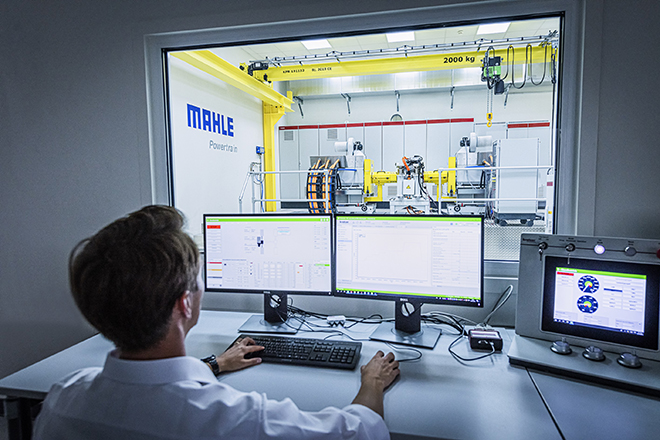MAHLE has commissioned a test bench for electric drives near Stuttgart, Germany. This equipment will be used to develop and test e-axles and e-drive units for a wide range of EVs. The company has invested around €3 million in the new facility.
“With the commissioning of the test bench, MAHLE continues the targeted expansion of its global range of services for e-mobility,” said VP Martin Berger. “Our customers and our developers can now benefit from an ultramodern facility, which is one of only very few in Germany.”
In the future, the new e-test bench in Fellbach will be used on behalf of international customers to carry out functional development work, simulate highly dynamic, transient modes of operation, perform efficiency measurements and torque vectoring, and simulate wheel slip scenarios. Operating map application and data population, testing of high- and low-voltage systems, and the investigation of thermal influences are also among the scope of services.
The test facility includes an e-axle unit consisting of two oppositely mounted load machines equipped with permanent-magnet synchronous electric motors. MAHLE says the bench has a nominal power handling capacity of 350 kW per dynamometer and a peak torque capacity of 8,400 Nm (7,000 Nm continuous). Separate battery simulators for applications ranging from 48 V to 1,000 V and a high-speed power analyzer system allow for performance mapping, performance characterization and efficiency studies to be carried out.
The new facility has a high-performance thermal conditioning system that provides a temperature range from -30° to +130° C for the accurate simulation of vehicle operating conditions. This ensures that the drives tested in the facility will function reliably under the widest variety of climatic conditions around the world. The time an e-drive spends on the test bench depends on specific customer requirements, and ranges from around 200 hours to test individual functions to a whole year when endurance testing is required.
Source: MAHLE


















































































